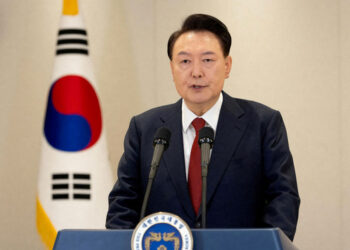By Olusegun Adeniyi
“It is commonplace to say that Nigeria is at the moment very lucky because of oil revenues. In a very real sense, we have much more money than our system can absorb. Unofficial estimates put the figure added to our reserve this year at N2 billion. In many essential respects this bounty has been a blessing…But the reverse side of this coin is painful to contemplate. The nature and source of oil money put it in a class of its own. A few years ago, a disturbing international report was published arguing in stark terms the failure of all underdeveloped oil producing countries to make more than marginal use of their splendid fortune. No effort is involved on our part. It is the foreigners who employ their capital and skills to exploit this resource and we simply receive huge autonomous additions to our national income.
“Such un-worked for riches can land a country in trouble of a peculiar kind. There is soulless opulence of the few, in evil contrast to crushing poverty of the many. There is unimaginable corruption and disastrously wrong allocation of resources. Above all there is the absence of hard work without which the country cannot pull itself together. In that sense the oil money becomes poison rather than honey. How will an economic historian 50 years hence explain the relative expenditure on agriculture and on the various forms of so-called ‘culture’: All-African Games, Black Arts Festival and all the rest of it? He must conclude that we had taken leave of our collective senses…”
—Editorial of the ‘New Nigerian’ newspaper, ‘Oil Money: Honey or Poison’, published on 29th June 1974
In less than two years we will mark the 50th anniversary of that editorial. I believe it is safe to conclude that when the ‘economic historian’ (envisaged by the editors of the once powerful national newspaper) arrives in June 2024, he will indeed conclude that he met people who had taken leave of their collective senses. That is the only way to explain what Nigeria has become, despite the incredible human capital and the humongous oil wealth that has accrued to our national coffers over the past 48 years.
The editorial of course did not simply lament the recklessness at the time, it also advocated that we deploy “considerable energies and resources in producing a commodity which is more important even than oil: food. We must at all costs get agriculture on the move again. There are millions of acres lying fallow when they could be used to grow food for our burgeoning population.” And to do that successfully, the editorialists suggested that “a N500 million plan with the help of, say, Danish and Chinese experts under our direction, would do wonders for grain productivity in this country. We may or may not have oil in 50 years. But to survive we must have food. The ground work can be done now.”
That groundwork never got started. Today, the poor in our country, according to the World Bank, number 95.1 million people. The implication is that as many as 45 percent of Nigerians are living below the poverty line with several millions not knowing where the next meal will come from. A joint report by the United Nations Food and Agriculture Organisation and the Federal Ministry of Agriculture and Rural Development released in March this year stated that approximately 19.4 million Nigerians would face food insecurity between June and August 2022. In the 2021 Global Hunger Index, Nigeria was ranked 103rd out of 116 countries—a level of hunger that is considered ‘serious’.
From the debt overhang to the national currency whose value diminishes by the minute to the oil and gas sector where the bounty of nature abundantly available on our shores has been ceded to thieves, Nigeria is in deep crisis. The atrocious security situation compounds our woes. Whether on the road, at school or in the marketplace, death has become an unscheduled consequence of normal living since government—the only human invention meant to separate men from beasts—has lost the monopoly of violence to sundry criminal cartels. After taking over the roads, bandits have also grounded the railway that we built with jumbo loans we don’t know how to repay. And gradually, flying is being priced beyond the reach of many of us.
Nigerian commentators often ask, ‘how did we get here?’
It is interesting that as far back as 48 years ago, the ‘New Nigerian’ editorialists highlighted the malaise. The ‘unimaginable corruption’ alluded to is still very much with us and so is ‘wrongful allocation of resources’. Projects running into hundreds of millions of dollars are conceived and cited for political reasons even when they make no economic sense. So it is little wonder that thousands of abandoned projects to the tune of several trillions of Naira litter the national landscape. That perhaps explains why our lawmakers could still contemplate establishing 63 additional universities, polytechnics and colleges of education that would be sited in their villages. The editorialists of 1974 also noticed that Nigerians didn’t see the correlation between work and wealth. That has also not changed, having deluded ourselves for decades that we are a rich nation whose citizens could enjoy practically everything free of charge.
On 22nd October 1925, Mohandas Gandhi published in his weekly newspaper, ‘Young India’ what he described as ‘Seven Social Sins’. It is quite instructive that the first on the list of those seven social sins he admonishes us to avoid is Wealth without work. The others of course are Pleasure without conscience; Knowledge without character; Commerce without morality; Science without humanity; Worship without sacrifice and Politics without principle. Apart from science for which we have not developed the requisite capacity, one can conclude that Nigeria is what it is today as a result of the prevalence of the six other social sins.
Indeed, wealth without work seems to be our national ethos and accounts for all manner of indulgences—including our uncontrolled (and largely unproductive) population, though many live in denial about the issue. At independence in 1960, our population was 45.2 million. That same year, the population of the United Kingdom was 52 million, meaning that the country from which we were gaining independence had about seven million more people than Nigeria. Today, the UK is 67 million, an increase of about 14 percent over the past 62 years while Nigeria’s estimated population is 216 million, an increase of almost 450 percent!
I am not here to read from the book of Lamentations. The catalogue of misdeeds is simply to remind us of things that need to change if we are to reposition our country for peace and prosperity. In his statement titled, ‘Let us pity the next president’ released on Tuesday, Sheikh Ahmad Abubakar Gumi highlighted the challenges ahead and the kind of leader Nigeria needs. He then concluded that “the next president is not going to face problems that are for a novice, nor can the nation wait for him to learn any longer. He should be ready from day one.” It’s not every day I share the same view with Gumi but I agree with him on that summation, as well as a number of his prescriptions. Our nation has reached a difficult intersection as we inch towards a crucial election. Sadly, there is no serious discussion about the future or why things must be done differently.
As things stand, the next president must come with the attitude of an orchestra leader: He must be prepared to back the crowd. There are no easy options ahead. Yes, we must wean our nation of the distributive politics of rent that is at the root of corruption and mismanagement. But all the talk about taxation, removal of subsidy, cost-reflective tariffs in other critical sectors etc. (which by the way I support) would make sense only with responsible representation. Without enthroning transparency and accountability at all levels of governance, it will be difficult to sell sacrifices and the usual ‘belt-tightening’ to an already overburdened citizenry. That explains why, at THISDAY, the editorial board has decided to engage the leading presidential candidates strictly on policy issues, as part of the conversation we must have before the 2023 general election. We have already begun with the New Nigeria Peoples Party (NNPP) presidential candidate, Senator Rabiu Musa Kwankwaso who spent two hours with us last week Tuesday. We intend to invite others before we begin publishing the series along with our impressions.
Nigeria’s dire straits offers a prospect for renewal. Unless we want to fritter the opportunity the 2023 general election presents as we have serially done over many decades. But the consequences will be devastating this time if we get it wrong again. In 1996, I illustrated the state of our nation with a story I have since repeated about three times because it is as funny as it is apt. Each time I have rehashed the story, I have sought the indulgence of readers. I do so again because it is about a husband, his wife and ‘The Other Room’.
As the story goes, and the man who told me insists till tomorrow that it is not ‘Fabu’, the husband happened to be a man with a healthy appetite who would not allow his wife any breathing space. After putting up with his antics for some years, madam took the matter to her in-law as the ‘court of first instance’. During ‘cross-examination’ by her mother-in-law, she admitted that their son was a perfect husband in every other area outside the bedroom. The in-laws declared that the woman had no case because their son was only claiming his rightful entitlement. Case dismissed!
Defeated, the poor woman accepted her fate for a while before reporting to her own parents. I have since designated this as the ‘court of appeal’ on the matter. Aside the questions earlier posed, her mother also sought to know: “Is your husband dating another woman?” She said no. In the ruling that followed, the parents scolded their daughter for attempting to shirk her marital responsibility. The appeal failed. Ultimately, the wife took the matter to their local pastor as the final arbiter, or if you like, the ‘Supreme Court’. Having listened to the ‘petitioner’, the pastor sent for the husband so he could hear both sides. The man did not dispute the story.
After hours of negotiation that involved bargaining and trade-offs, the pastor sealed the deal with a maximum of three times a day—concluded to be sufficient for any couple. To cut a long story short, things went well until the weekend. By mid-day of the following Saturday, the husband had performed his matrimonial obligation three times and the wife thought she would be left alone. When he therefore started behaving funny, she exploded: “What is the problem? Have I not met my responsibility for today?”
Looking crestfallen, the husband replied: “Yes, I know, but please borrow (lend) me one from tomorrow’s…”
As I have said in the past, and will yet repeat, what we are dealing with here is a metaphor for the Nigerian condition and our proclivity for indiscriminate borrowing from the future. The consequences are also clear before us. Last week, I had a chance encounter with the man who told me the story of the couple some 26 years ago. The marriage, he said, has since collapsed. Except we return to the path of responsible governance and committed citizenship, such a tragic fate awaits Nigeria. That’s why 2023 is so crucial. I hope we get it right this time!
Daisy Danjuma at 70
Maintaining a work-life balance is difficult. Particularly for women in a patriarchal society like ours. And it is even more so when the woman is both beautiful and professionally accomplished. But somehow, Mrs Daisy Danjuma, a lawyer of almost five decades, has succeeded in finding that right balance. She has become a worthy role model for many Nigerian women who believe they are not only equal to men but can attain their full potential while keeping their home without compromising cherished principles. Interestingly, although married to one of the most powerful men in Nigeria, Mrs Danjuma has for decades, by sheer force of personality, been among a tiny group of people more easily recognized by their distinctive first names. To many Nigerians, she is simply Daisy!
Mrs Danjuma, who will be 70 on Saturday, had a stint in politics as an elected Senator representing Edo South between 2003 and 2007 before joining her husband in the corporate world where she currently brings her intellect, experience and exposure to bear as the Executive Vice Chairman of Sapetro and Chairman, May and Baker Nigeria Plc. But her one-term Senate stint was also very remarkable. As Chairman of the Senate Committee on Women Affairs and Youth, Senator Danjuma spent her time fighting for the most vulnerable of our society as one of the early promoters of what eventually passed as the Violence Against Persons (prohibition) Act (VAPP), 2015.
A decade earlier in 2005, Senator Danjuma had sponsored one of the most important health legislations in the country. Perhaps out of ignorance or mischief, a bill aimed at reducing the prevalent maternal and child mortality in the country suddenly became an “abortion promotion bill” for which she was vilified. Meanwhile, what the Senator sought was the establishment of an institute to tackle reproductive health in a manner that would focus on child and maternal health. But the issues she raised are as important today as they were yesterday and will remain so tomorrow.
According to the United Nations Population Fund (UNFPA) estimates, 303,000 women die annually in childbirth or as a result of complications arising from pregnancy. This approximates to the avoidable loss of one woman every two minutes. But that does not even tell the whole story of the frightening statistics. Approximately two-thirds of those maternal deaths occur in sub-Saharan Africa with Nigeria and India accounting for one-third of all global deaths. It was in a bid to tackle this preventable menace that Senator Danjuma introduced the proposed legislation that attracted stiff opposition in a country where hypocrisy has become a national ideology.
Having attended Ahmadu Bello University (ABU), Zaria in the seventies, Senator Danjuma belongs to the generation that saw a better Nigeria than what we witness today. That has inspired her to give back through quiet acts of philanthropy. But much more importantly, as she joins the elite club of septuagenarians, Daisy Danjuma has proved that for Nigeria to develop and thrive, ‘The Other Room’ must be for our women a place of gender equality and mutual respect rather than a place of subjugation by men.
I wish Senator Daisy Danjuma happy birthday, long life and good health.
You can follow me on my Twitter handle, @Olusegunverdictand on www.olusegunadeniyi.com




































